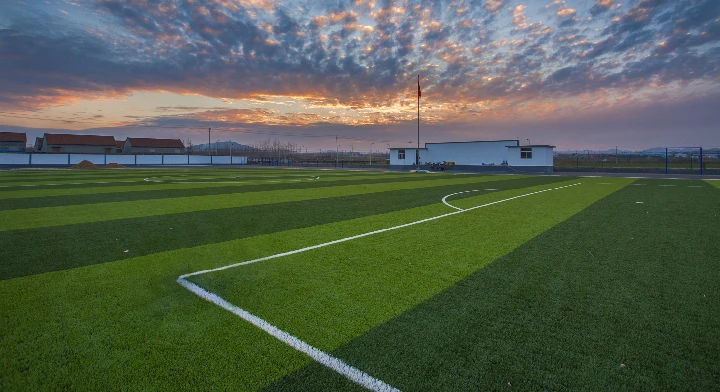
- Afrikaans
- Arabic
- Belarusian
- Bengali
- Czech
- Danish
- Dutch
- English
- Esperanto
- Estonian
- Finnish
- French
- German
- Greek
- Hindi
- Hungarian
- Icelandic
- Indonesian
- irish
- Italian
- Japanese
- kazakh
- Rwandese
- Korean
- Kyrgyz
- Lao
- Latin
- Latvian
- Malay
- Mongolian
- Myanmar
- Norwegian
- Persian
- Polish
- Portuguese
- Romanian
- Russian
- Serbian
- Spanish
- Swedish
- Tagalog
- Tajik
- Thai
- Turkish
- Turkmen
- Ukrainian
- Urdu
- Uighur
- Uzbek
- Vietnamese
Understanding the Financial Implications of Installing Artificial Turf in Various Applications
Dec . 06, 2024 12:04 Back to list
The Cost of Artificial Turf An In-Depth Analysis
In recent years, artificial turf has gained immense popularity in various sectors, including sports, landscaping, and residential settings. While its aesthetic appeal and practical advantages are often highlighted, the cost of installing and maintaining artificial turf can be a significant consideration for potential buyers. This article aims to delve into the various factors influencing the overall cost of artificial turf and to provide a comprehensive understanding of its financial implications.
Initial Installation Costs
The first and perhaps most obvious factor influencing the cost of artificial turf is the initial installation expense. On average, the cost of artificial turf can range from $5 to $20 per square foot, depending on the quality of the turf and the complexity of the installation. Premium options, often designed to mimic natural grass more closely, can push prices higher. When considering a larger area, such as a football field or an expansive backyard, these costs can accumulate quickly, leading to a hefty initial investment.
In addition to the turf itself, other expenses come into play during installation. These may include site preparation, which often involves removing existing grass, leveling the ground, and ensuring proper drainage. Depending on the site’s condition, these preparations can add several thousand dollars to the project. Additionally, installation costs can be affected by regional labor rates, which vary significantly across the country.
Long-Term Maintenance Costs
One of the perceived advantages of artificial turf is its low maintenance requirements compared to natural grass. However, it is essential to consider the long-term costs that come with upkeep. While artificial turf does not require regular mowing, watering, or fertilizing, it does demand some maintenance to keep it in good condition.
Routine maintenance includes brushing the turf to prevent matting and evenly distributing the infill material, which ensures proper drainage and maintains the carpet-like feel of the surface. Additionally, periodic cleaning is necessary to remove debris, stains, and organic material that can harbor bacteria or pests. Many turf owners opt for professional cleaning services, introducing another recurring expense.
cost of artificial turf

Over time, artificial turf may also require repairs or replacement of sections that are excessively worn or damaged, adding to the overall cost burden. While the lifespan of quality artificial turf can range from 8 to 15 years, depending on usage and care, budgeting for eventual replacement is necessary for those planning long-term installations.
Environmental and Health Considerations
It’s important to factor in the environmental and health costs associated with artificial turf. While many might see artificial turf as a sustainable alternative to water-intensive natural grass lawns, environmental concerns persist. The production of artificial turf involves the use of petroleum-based products, raising questions about its carbon footprint. Moreover, issues surrounding heat retention due to the synthetic materials can pose risks during hotter months.
Health concerns tied to artificial turf include the potential for heat-related injuries, as the surface can become significantly hotter than natural grass. Additionally, certain types of infill material, particularly those containing crumb rubber, have sparked debates on safety and long-term health impacts.
Conclusion
In summary, the cost of artificial turf is multifaceted, encompassing installation expenses, maintenance, and potential environmental and health considerations. While the initial price tag can be daunting, the long-term savings from reduced water usage and labor-intensive upkeep can offer a compelling argument for its installation.
Ultimately, for homeowners or organizations considering this investment, it is crucial to conduct thorough research, weigh the upfront and ongoing costs, and evaluate personal or organizational needs and values. With careful consideration, artificial turf can be a viable option that meets both aesthetic and functional requirements while adhering to budgetary constraints.
-
The Benefits of Artificial Turf for Indoors
NewsJul.15,2025
-
How Artificial Grass Suppliers Ensure Quality Products
NewsJul.15,2025
-
Artificial Grass and Pets: A Space for Relaxation
NewsJul.08,2025
-
Balcony & Outdoor Decoration with Artificial Grass
NewsJul.08,2025
-
Best Indoor Artificial Grass for Home
NewsJul.07,2025
-
Best Pet Turf for Dogs: Safe & Durable Artificial Grass Options
NewsJul.07,2025
Products categories









